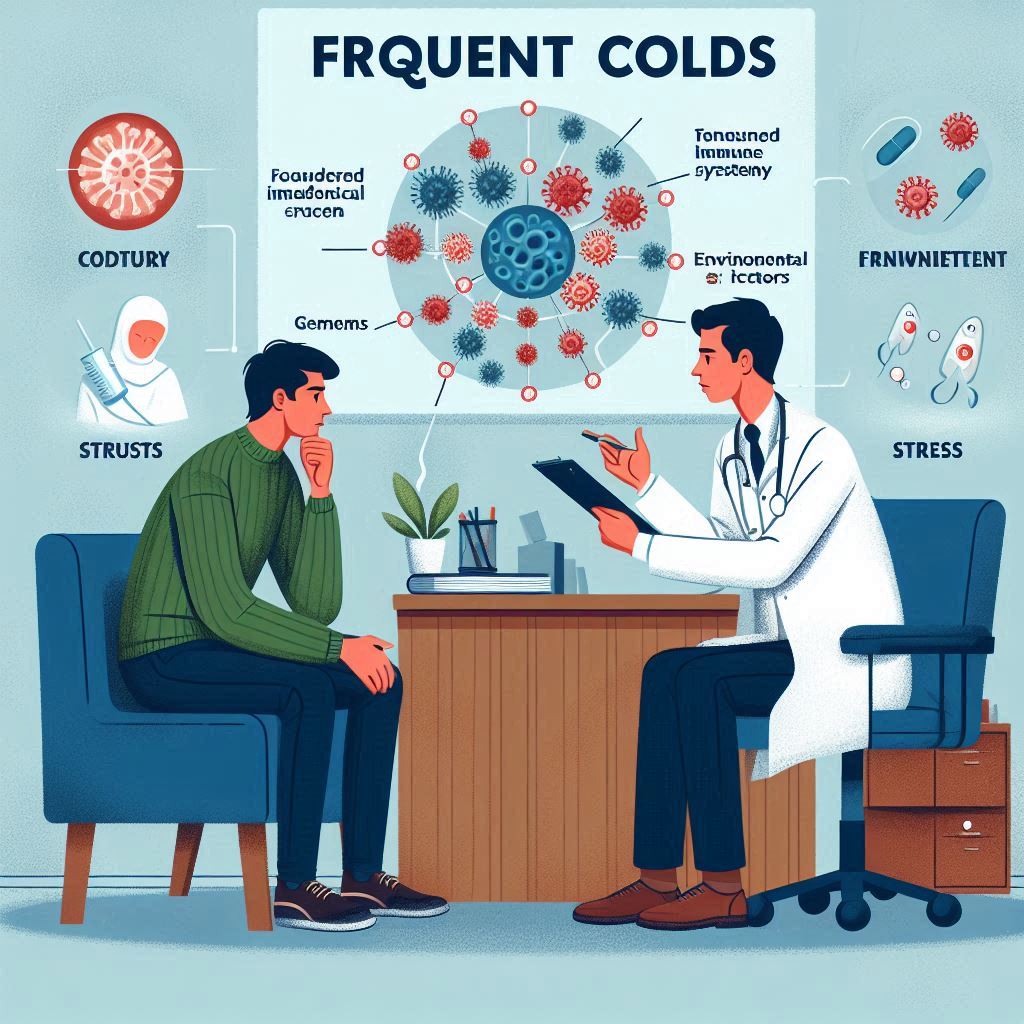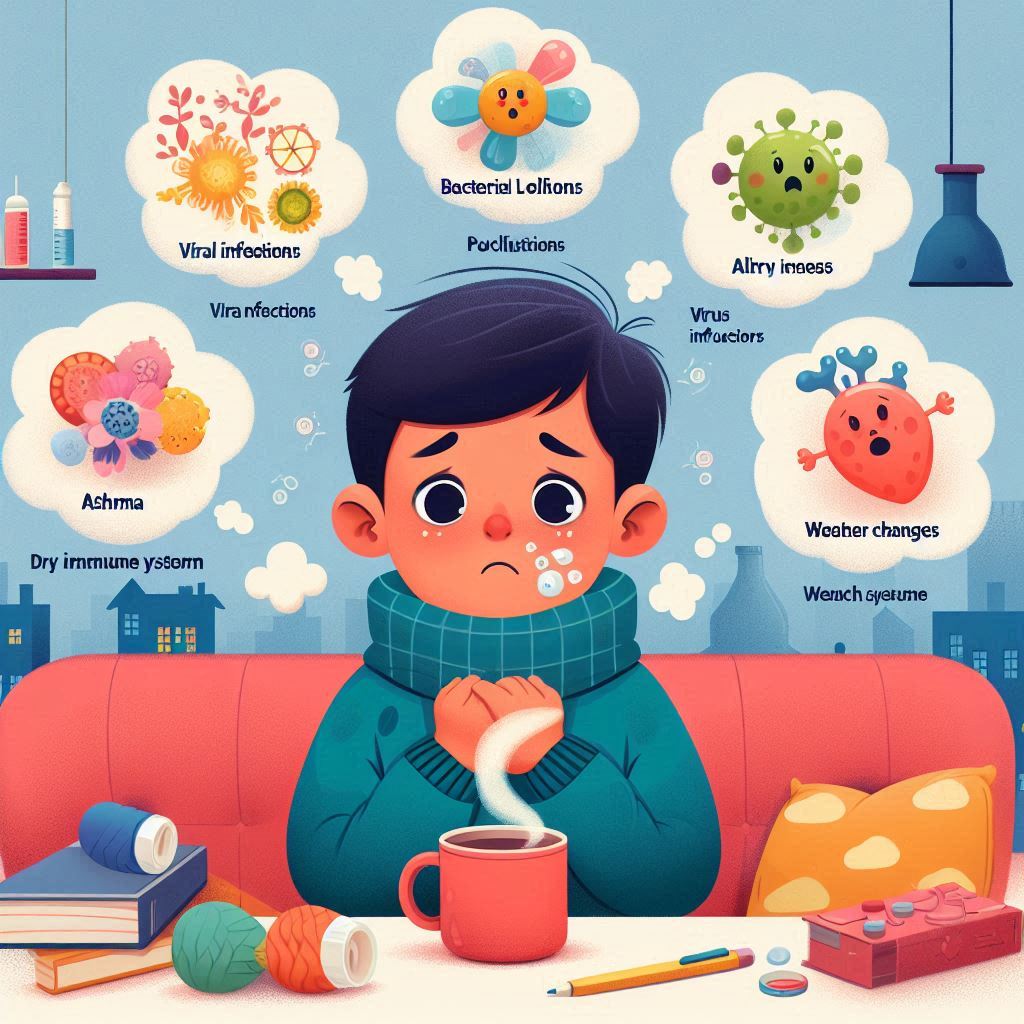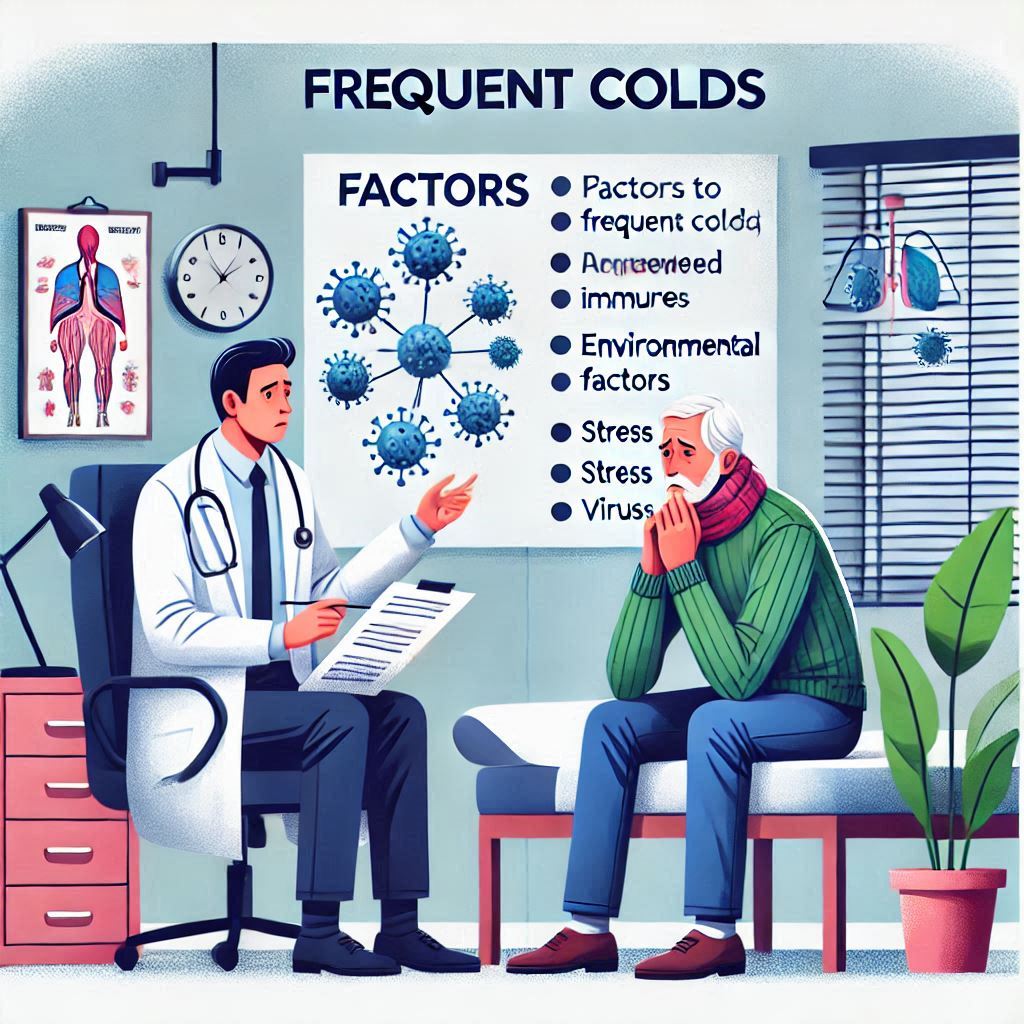Blog Details
Recent posts
Why Do Some People Get Colds More Often?

- 21-November-2024
- 26 Likes
Although colds are among the most common illnesses, certain individuals seem to be more susceptible to them than others. Frequent colds may indicate underlying causes beyond mere bad luck, despite the occasional occurrence of colds being typical. This article examines the environmental, lifestyle, and genetic factors that contribute to the increased frequency of colds in some individuals.
1. Genetics: Do You Have a Predisposition?
The immune system's response to infections is significantly influenced by genetic factors. Some individuals inherit genes that either weaken or enhance the immune system's reactivity to specific pathogens, such as the rhinovirus responsible for colds.
- Immune System Variability: The human leukocyte antigen (HLA) system, which helps the body recognize and fight infections, varies among individuals. Certain genetic profiles may result in a diminished immune response to cold viruses.
- Immunodeficiencies and Allergies: Genetic predispositions to conditions like allergies or primary immunodeficiencies can make a person more vulnerable to respiratory infections.
2. Lifestyle Choices: Impact of Daily Habits
Your daily habits and lifestyle choices play a significant role in how frequently you catch colds. Unhealthy habits can weaken the immune system, making it harder to combat infections.
- Sleep Deprivation: Insufficient sleep reduces the production of immune cells, increasing susceptibility to colds.
- Stress: Chronic stress raises cortisol levels, weakening the immune system and making one more prone to illness.
- Poor Diet: A diet lacking in essential nutrients, particularly zinc, vitamin C, and vitamin D, can impair immune function.
- Inadequate Exercise: A sedentary lifestyle can weaken immune defenses, while regular moderate exercise can bolster immune health.
3. Environmental Factors: The Influence of Your Surroundings
The environment in which you live and work can also impact your likelihood of contracting a cold. High exposure to germs and other unfavorable conditions may increase your risk.
- Crowded Spaces: Environments such as public transportation, offices, or schools, where close contact with others is frequent, increase exposure to viruses.
- Air Quality: Poor air quality, whether due to pollution or inadequate ventilation, can irritate respiratory passages and reduce the body’s resistance to infections.
- Seasonal Changes: The dry, cold air during winter creates conditions that promote the survival and spread of viruses.
- Close Contact: Being in close quarters with individuals who are already ill increases the risk of transmission.
4. Age and Immune System Decline
Age can significantly impact immune function. Children, whose immune systems are still developing, are more susceptible to infections, while the immune systems of older adults typically weaken over time.
5. Hygiene Habits: Your First Line of Defense
Poor hygiene practices can significantly increase the likelihood of contracting a cold. Simple precautions, such as frequent handwashing, avoiding face-touching, and maintaining cleanliness, can greatly reduce exposure to viruses.
Can You Reduce Your Risk of Frequent Colds?
While certain factors, such as genetics, are beyond your control, there are proactive measures you can take to lower your risk:
- Boost Immunity: A healthy diet, regular exercise, and adequate sleep help strengthen the immune system.
- Hygiene: Practicing proper hygiene and avoiding close contact with sick individuals can reduce the risk of infection.
- Reduce Stress: Techniques such as yoga or meditation can help manage stress, which in turn supports immune function.
- Vaccination: Receiving flu shots and staying current with vaccinations can protect against more severe infections.
Conclusion
Although frequent colds can be bothersome, understanding the role of genetic, lifestyle, and environmental factors can help individuals reduce their risk. Even if some factors are uncontrollable, adopting healthier habits and better hygiene practices can significantly lower the likelihood of frequent colds and enhance overall health. A robust immune system remains the best defense against the common cold.
Recent Post

Common Causes of Coughs and Colds in Children & How to Manage Them
- 25 February 2025
Learn the common causes of coughs and colds in children, including viral infections, allergies, and pollution. Get expert advice on prevention and management to keep your child healthy and comfortable during seasonal changes.

Understanding the Fundamentals of Coughing and Colds
- 19 November 2024
Colds and coughs are common conditions experienced by many individuals. While they frequently occur together, their causes and symptoms differ. Understanding these differences aids in more effective management and prevention.